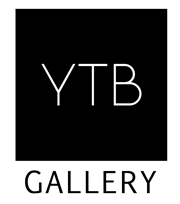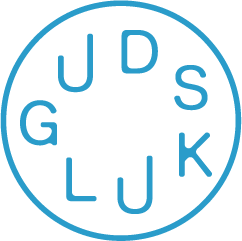THE TEAM
Cyber Fellows was initiated by Younger Than Beyoncé with support from the Canada Council for the Arts. This inaugural edition was co-designed and co-facilitated with Gudskul members Gesyada Annisa Namora Siregar, Angga Wijaya, and Amy Zahrawaan; Flux Factory members Lexy Ho-Tai, Jonathan Sims, and Carlos David TC; and Pulse Lab member Katie Huckson.
 In 2009 the New Museum in New York held its first triennial of emerging artists called “Younger Than Jesus,” showcasing work by artists under 33. The show was controversial because it defined the generation through their habits of consumption rather than production. Five years later, Younger Than Beyoncé initiated a nomadic, D.I.Y. response to this landmark exhibition, within the context of the Toronto arts community and surrounding neighbourhoods. From 2014-2016, we ran a 3,600-square-foot space in Regent Park where we programmed 13 exhibitions. We worked with over 100 artists born after 1981 (or who are otherwise emerging) with paid opportunities to develop their art careers and grow into artistic leaders.
In 2009 the New Museum in New York held its first triennial of emerging artists called “Younger Than Jesus,” showcasing work by artists under 33. The show was controversial because it defined the generation through their habits of consumption rather than production. Five years later, Younger Than Beyoncé initiated a nomadic, D.I.Y. response to this landmark exhibition, within the context of the Toronto arts community and surrounding neighbourhoods. From 2014-2016, we ran a 3,600-square-foot space in Regent Park where we programmed 13 exhibitions. We worked with over 100 artists born after 1981 (or who are otherwise emerging) with paid opportunities to develop their art careers and grow into artistic leaders.
Our practice builds an art ecosystem that supports collaboration instead of competition between emerging artists. We are researching methodologies that counter a culture obsessed with winning and capitalist ideals of productivity. Instead of fast-paced cultural programming, we focus on supporting collaborative practices and building supportive ecosystems in the GTA and internationally, specifically ones that centre artists who face multiple barriers to building an art career, including 2SLBGTQ+ artists, and artists who are BIPOC.
YTB is Michael “Humboldt” Magnussen, Marsya Maharani, Marjan Verstappen, and Geneviève Wallen. Members of YTB live and work on the territories of the Mississaugas of the Credit, the Anishinaabe, the Haudenosaunee, and the Wendat peoples; on Treaty 6 Territory and within the Métis homelands and Métis Nation of Alberta Region 4, which are the traditional territories of many First Nations including the Néhiyaw, Denesuliné, Nakota Sioux, Anishinaabeg, and Niitsitapi; and in Tiohtiá:ke, which is situated on the traditional territory of the Kanien’kehà:ka, and long served as a site of meeting and exchange amongst many First Nations including the Kanien’kehá:ka of the Haudenosaunee Confederacy, Huron-Wendat, Abenaki, and Anishinaabeg.
 Gudskul is an educational knowledge-sharing platform formed in 2018 by three Jakarta-based collectives: ruangrupa, Serrum, and Grafis Huru Hara.
Gudskul is an educational knowledge-sharing platform formed in 2018 by three Jakarta-based collectives: ruangrupa, Serrum, and Grafis Huru Hara.
Gudskul sincerely believes that sharing and working together are two vital elements in developing Indonesian contemporary art and culture. Their intent is to disseminate the initiative spirit through artistic and cultural endeavours in a society committed to collectivism, and to promote initiators who make local needs their highest priority, while at the same time contributing to and holding crucial roles internationally. Gudskul is building an ecosystem in which many participants are co-operating, including artists, curators, art writers, managers, researchers, musicians, filmmakers, architects, cooks, designers, fashionistas, and street artists.
Gudskul members focus on different (artistic) practices and media, such as installation, video, sound, performance, media art, citizen participation, graphic arts, design, and pedagogy, etc. This multiplicity contributes to diversifying the issues and actors involved in every collaborative project that happens within a social, political, cultural, economic, environmental, and pedagogical context. Gudskul is open to anyone who is interested in co-learning, developing collective-based artistic practices, and art-making with a focus on collaboration.
 Flux Factory’s mission is to support emerging artists through Artist-in-Residencies and Exhibitions, education and collaborative opportunities. Flux is an artist-led space that builds sustainable communities and retains creative vitality in NYC. Since 1994, Flux has hosted over 300 Artists-in-Residence, both local and international, and staged over 700 exhibitions across all disciplines. Flux’s home in Long Island City is a creative hive that incubates experimentation and collaborative processes. Flux hosts over 75 annual multidisciplinary events; all are free to the public, while all participating artists are compensated. Each year Flux selects 40 Artists-in-Residence to develop their creative practices by offering affordable studios, shared workspaces (such as a print shop, wood shop, and technical office), a solo exhibition, as well as professional development opportunities. Flux commissions 100 multidisciplinary artworks annually through open calls with four annual Group Exhibitions.
Flux Factory’s mission is to support emerging artists through Artist-in-Residencies and Exhibitions, education and collaborative opportunities. Flux is an artist-led space that builds sustainable communities and retains creative vitality in NYC. Since 1994, Flux has hosted over 300 Artists-in-Residence, both local and international, and staged over 700 exhibitions across all disciplines. Flux’s home in Long Island City is a creative hive that incubates experimentation and collaborative processes. Flux hosts over 75 annual multidisciplinary events; all are free to the public, while all participating artists are compensated. Each year Flux selects 40 Artists-in-Residence to develop their creative practices by offering affordable studios, shared workspaces (such as a print shop, wood shop, and technical office), a solo exhibition, as well as professional development opportunities. Flux commissions 100 multidisciplinary artworks annually through open calls with four annual Group Exhibitions.
 Pulse Lab collaborates to critically unpack and adapt technologies to meet community-driven needs, enable sustainable innovations and create social change. Pulse Lab intervenes via feminist, intersectional, anti-oppression, crip and critical ageing approaches to name, reflect and counter bias and oppression; experiments with tools to foster access, literacy, equity and to counter digital ageism; collaborates with community using critical co-design approaches; negotiates the tools we uses, rejecting digital solutionism; and centers play and art to incite senses and enhance well-being and health.
Pulse Lab collaborates to critically unpack and adapt technologies to meet community-driven needs, enable sustainable innovations and create social change. Pulse Lab intervenes via feminist, intersectional, anti-oppression, crip and critical ageing approaches to name, reflect and counter bias and oppression; experiments with tools to foster access, literacy, equity and to counter digital ageism; collaborates with community using critical co-design approaches; negotiates the tools we uses, rejecting digital solutionism; and centers play and art to incite senses and enhance well-being and health.